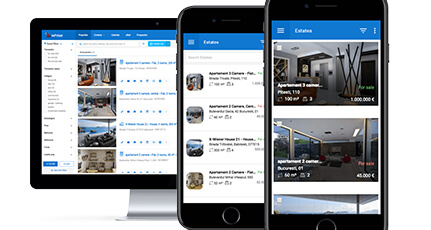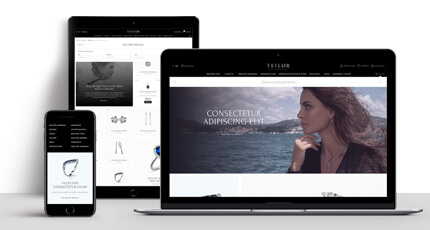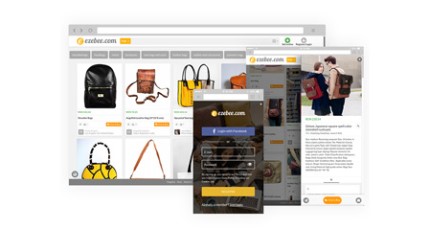Choosing the right CMS for your business is as challenging as necessary. There are several types of content management systems, and each of them comes with both pros and cons.
This article is aimed to help you make a decision based on the following information:
Old-school CMS versus Modern CMS
Even if an old-school CMS is designed to deliver exactly what it promises – content management for a specific website – digital requirements become more complex and diverse nowadays.
So, the main 2 reasons why an old-school CMS can’t be the right choice for your needs and can’t respond to today’s digital requirements are:
- lack of flexibility when delivering content for mobile apps/web apps;
- lack of compliance and integration with other digital tools.
On the other hand, a modern content management system that it’s also the right choice for you will provide you, cumulatively, the following benefits:
- valuable insights and users’ activity smart tracking based on multi-channel data sources;
- improved user experience based on analytics insights;
- raw data stored content that can be delivered in different formats;
- content stored in powerful databases that increase performance for the returns in data search;
- personalized content delivery and marketing automation.
Types of Content Management Systems
From the access perspective, you have to choose between:
Proprietary CMS – you have to pay for access or license to use this CMS.
The advantages of using a proprietary CMS:
- initial costs are low – using a pre-built solution;
- regular updates;
- low risk of spam.
The downsides of using a proprietary CMS:
- you don’t own the CMS, so you have no control over it;
- your website will only work as long as you keep it with that proprietary CMS;
- your website can’t be migrated on a different domain;
- the costs of a license can become overwhelming;
- for some CMSs, you can’t customize the system according to your specific needs.
Open Source CMS – free, open-source code solution that is flexible and highly customizable.
The advantages of using an Open Source CMS:
- longterm costs are low – no license or upgrades fees;
- no longterm commitment;
- unlimited customizations;
- high-level portability;
- can be easily taken over by a new team of developers (while a custom CMS involves a learning/adaptation period, with no landmark specifications to count on);
- increased collaboration among team members – technical and non-technical;
- great control over the content;
- can be optimized and customized any time;
- simple to optimize for search engines – based on plugins;
- easy-to-use for any fluent programmer.
The downsides of using an Open Source CMS:
- some CMSs have security issues (being open source with public code). Still, CMSs like Umbraco are very stable from the security perspective;
- more exposure to spam;
- some customizations may be costly.
From the nature of the content perspective, you have to choose between:
Web Content Management System (WCMS) – handles web content exclusively and doesn’t require prior tech knowledge.
Component Content Management System (CCMS) – granular content management with a particular focus on content reusability and traceability.
Enterprise Content Management System (ECM) – efficiency-center content management system with a great focus on processes (organizing and delivering content to a wide range of users).
Digital Asset Management System (DAM) – provides a centralized content repository and dynamic publishing tools.
Document Management System (DMS) – secure content management system that allows you to manage data and documents in cloud.
Checklist
Criteria you should take into account when selecting a CMS that is right for you:
- Scalable
- Intuitive
- User-friendly interface;
- Number of features;
- Content delivery speed;
- Easy to use by the end-user;
- Easy to manage by the developers;
- Easy to migrate data;
- Integration and compliance with other systems;
- Budget-friendly;
- Safe & secure for data management.
Umbraco – 5 Things You May Want to Know About this CMS
1. What is Umbraco?
Umbraco is an open-source .NET CMS (content management system) designed for publishing content on the World Wide Web and intranets. It’s got plenty of ready-to-use packages and plugins and helps build friendly URLs. It’s flexible enough to cover a wide range of needs, from small presentation websites to complex applications for large media organizations. Its many add-on modules allow for a high degree of customization.
2. For whom is it suitable?
Umbraco offers flexibility and great editing experience being an excellent choice for both developers and marketers. If you manage an agency, Umbraco is a CMS that you definitely must take into account.
3. What are the benefits of using Umbraco?
- user-friendly content management system;
- multi-language capability;
- an active community that offers support;
- vast documentation;
- further development of the CMS.
4. How can you manage maintenance for legacy Umbraco websites?
From maintenance, support, and bug fixing to new features implementation – working with a dedicated development team will save you from headaches and efforts. For instance, we can give you a dedicated developer to work with you as needed, or we can set up a Service Level Agreement (SLA) system and set timelines for your requests.
5. Can Umbraco be integrated with other systems?
With its many modules and ease of customization, Umbraco can be integrated with almost any system. Some of the third-party systems that we can integrate Umbraco with include:
- Microsoft Dynamics and many other CRMs
- Social media APIs
- Enterprise platforms
- Payment gateways
And, if you need help with exporting/importing data, you can always rely on our team. We can export data from your Umbraco website to other systems, or we can create an API that allows other systems to integrate with your CMS.
Projects Developed with Umbraco
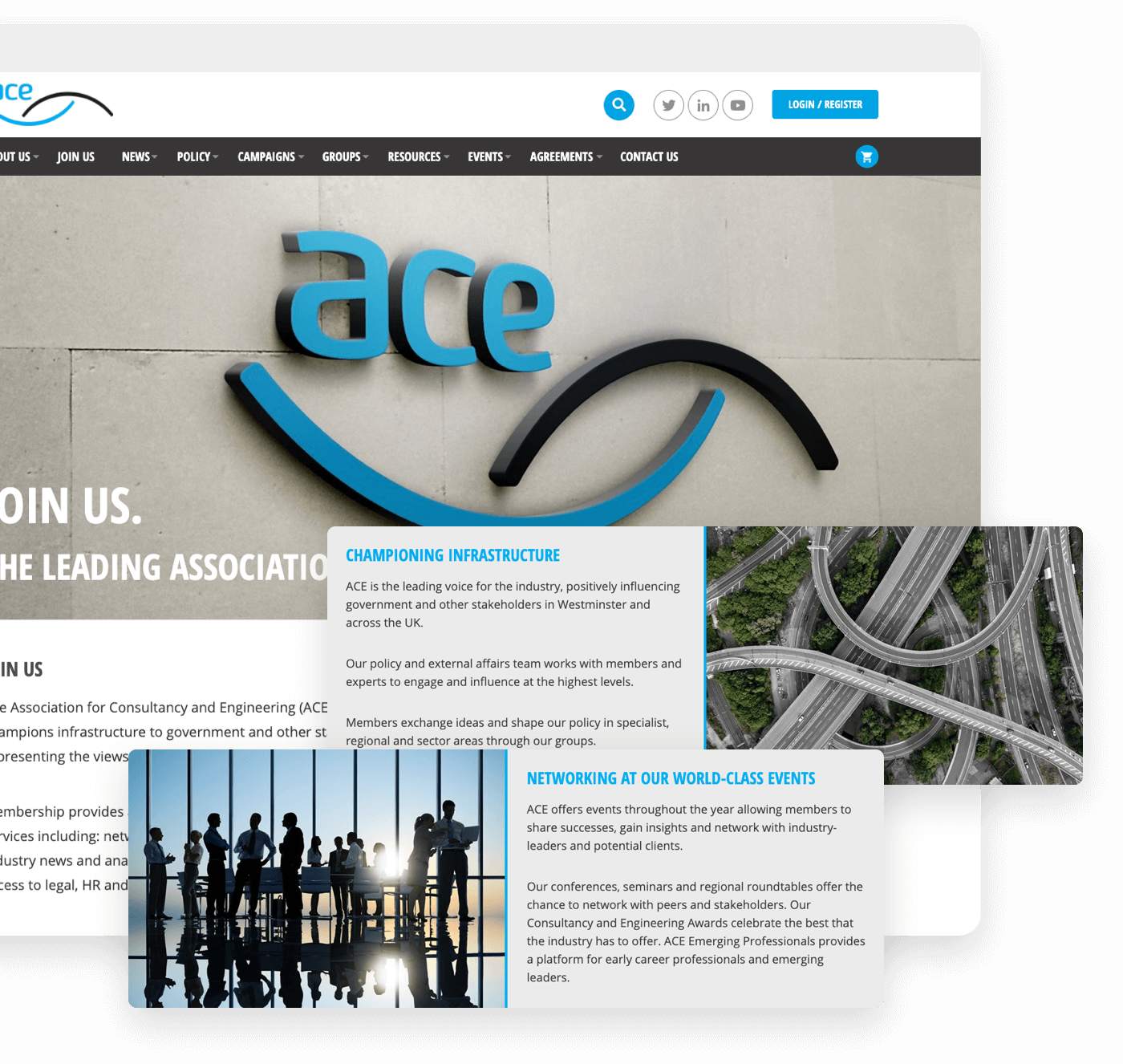
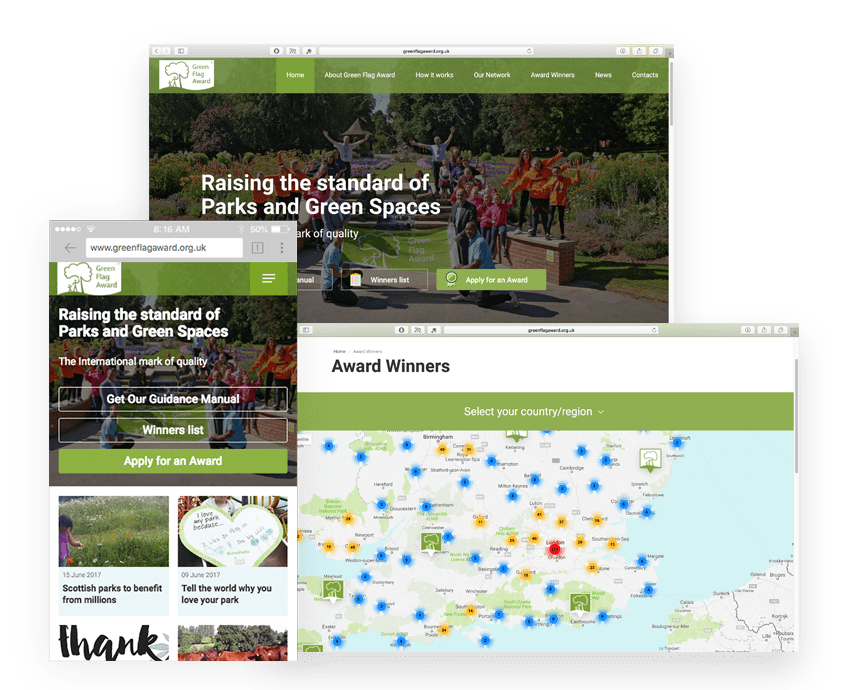
Green Flag Award – UK



